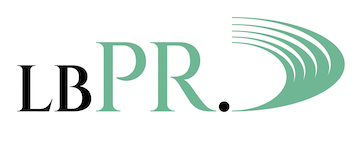What is PR?
‘Peearrr’ - or PR - is often heard in conversations about ‘marketing’ - and the two terms are often used kind of interchangeably. But while PR plays a role in marketing, it’s not the same thing. So what is it, and what should it mean to you?
As we all know, PR stands for ‘Public Relations’. But the word ‘Public’ here refers to any defined group or audience which has an involvement with your business. They are your stakeholders, your audiences, your ‘publics’. It’s not just about the press, as it’s sometimes taken to be - it’s everyone.
Your existing customers are one public, your staff another, your suppliers and investors others still. Your business has to communicate with each of these groups to some extent - at different times, in different ways and for different reasons.
So, PR is communication - between a business and its stakeholders. If you do it well, it supports your relationships with those groups. It helps to maintain your reputation and the positive perceptions that your stakeholders must have for your business to thrive.
And with PR, like all good communication, the ideal is that it’s mutually beneficial – worthwhile and valuable in some way to both your business and your audience. Information is valuable if it’s useful, and if it’s true.
“If you’re watching a movie and there’s a character who does PR, it’s a good bet they’re the most annoying person in it.”
Ironically, PR gets a really bad press. It’s too often equated with brainwashing and bullshit (that’s propaganda, not PR). If you’re watching a movie and there’s a character who does PR, it’s a good bet they’re the most annoying person in it.
In the real world, how you communicate is important. Generally speaking, people like to do business with a company that’s honest, approachable, and reliable. Most people in our industry are good at getting on with other people (I say ‘most’ – you know the guy I’m thinking of). Lying will only get you so far, and then not for long.
People in our business need to be able to trust each other. The industry works by groups of individuals with various interests and skills collaborating to achieve a shared goal, often a very complex one. And they must work together successfully, and do it to schedule. Communication has to be excellent.
In entertainment, it’s relatively rare that the end product (i.e. the show) isn’t ready on time. In the construction industry, for example, it’s rare that it is: an estimated 60% of building projects are delivered late. For the IT industry (according to PWC) that figure is over 97%. So you can all give yourselves a big pat on the back, I reckon.
But I digress. My point is that PR is communication, and good communication is good PR. In the entertainment production industry, personal relationships and trust are especially important. And it’s not just about production team members talking to each other, it’s about communication between manufacturers, suppliers and end-users, designers and clients, service providers and potential customers.
Communication should make understanding clear and information useful. By communicating well, you’re helping to ensure that the job gets done, and that you’re likely to keep on doing it.
And that, for us, is PR.
